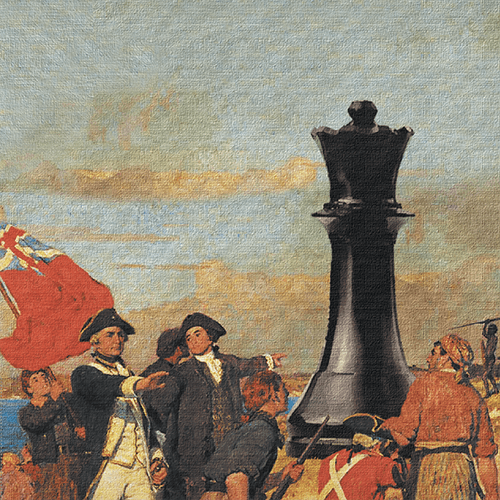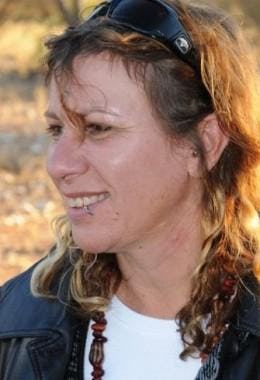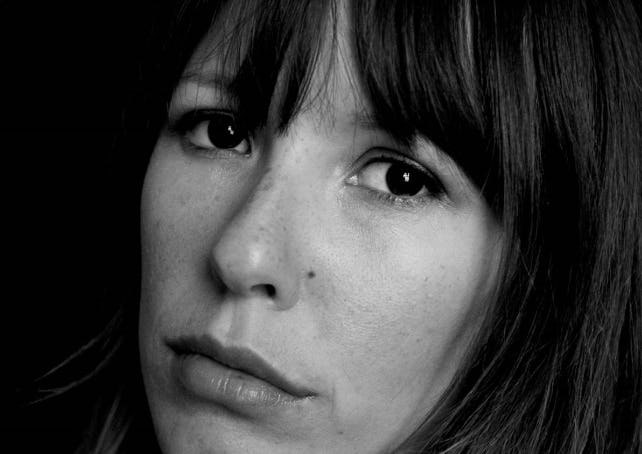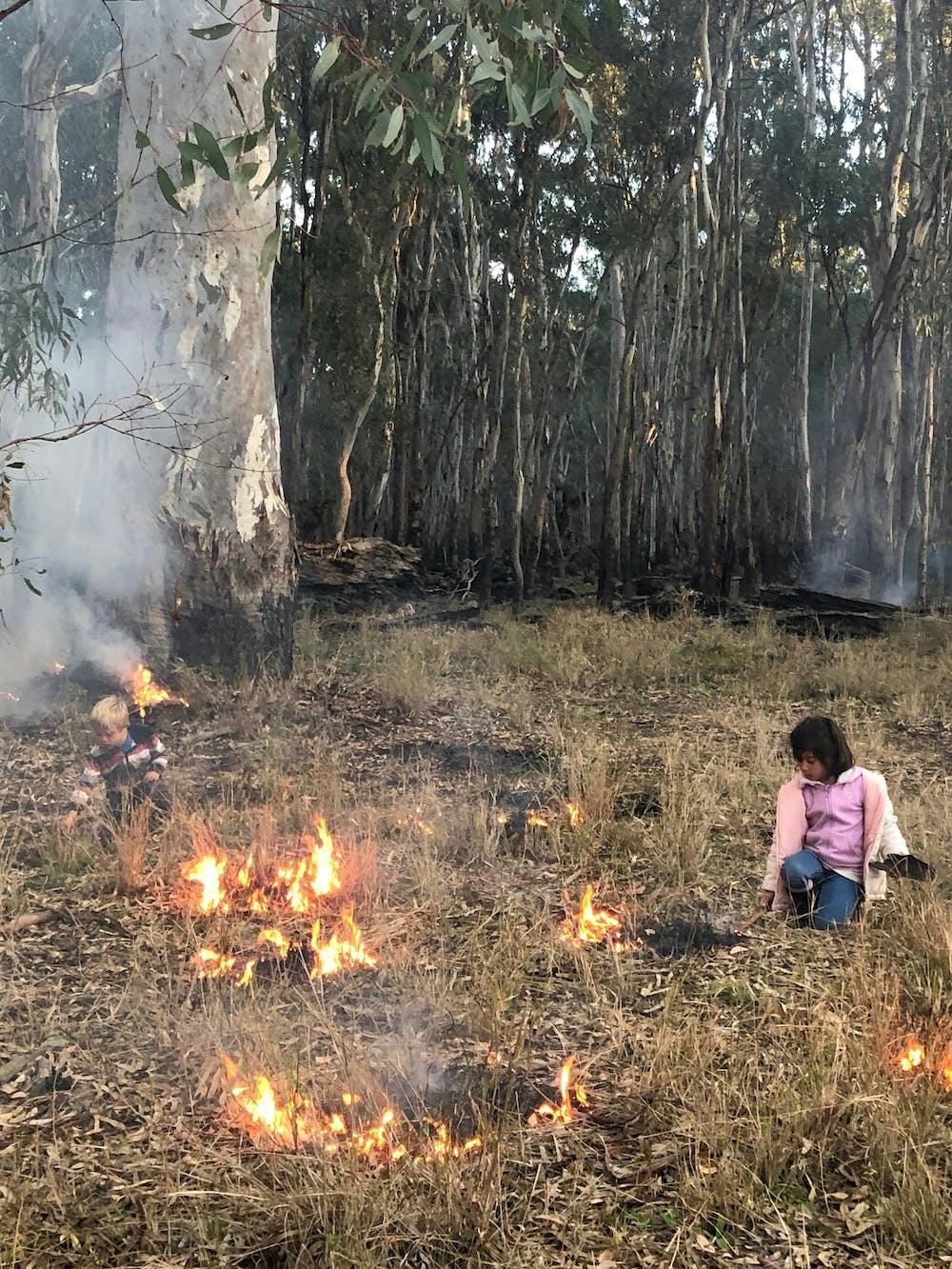Indigenous Love and Ways of Loving
Merinda Dutton • 16 September 2022
Giinagay! I became interested in the idea of Indigenous (Blackfulla) love because so rarely is it something that is talked about in relation to us as Indigenous people, especially within mainstream literature. Too often Indigenous love is portrayed from a deficit place. This issue brings together writing by First Nations authors in their articulation of love in all its forms and power. For us, to love is to be sovereign.
While romantic love or love between two people is great and all, Indigenous love extends beyond the individual to the community. Indigenous love encompasses the land and our non-human kin. It is relational. Invariably, it also includes a love and care for language and for future generations. Each piece within this newsletter expands on what you think you know about love and wraps you in the warm embrace that is Indigenous love.

Always Bet on Black (Power)
Chelsea Watego, Meanjin, Spring 2021
In a powerful essay about her decision to withdraw her discrimination claim against the University of Queensland, Chelsea Watego impresses upon the audience that within the fight against racism and the call for a reimagined reality of shared humanity is a love for black people. For her, it includes the love for community.
The radicalism of Black power in its rage is its love for Black people, a love that extends beyond the self, yet centres a collective Black self-love, unconditional and unwavering. Thus at the heart of the fight against race are not individual grievances, wins or wealth, or what Cornel West describes as installing 'Black faces in high places'.
(Note: This essay was featured in The Circular’s very first issue. It appears again here, but importantly, framed in a different context.)

Yankunytjatjara Love Poems
Ali Cobby Eckermann, Poetry International, 2010
Yankunytjatjara Love Poems embodies the communal nature of Indigenous love. Cobby Eckermann stunningly imbues that love with an interconnectedness to land and language.
there is love in the wind by the singing rock
down the river by the ancient tree
love in kangaroo goanna and emu
love when spirits speak no human voice
at the sacred sites eyes unblemished
watch wedge tail eagle soar over hidden water
find the love
(Note: originally published in the anthology The Best Australian Poems 2010.)
Ngumambinya: Trust for Help
Anita Heiss, Griffith Review, February 2020
Heiss articulates Aboriginal values as being about community and not the individual. In this compelling essay, Heiss puts forward the idea of learning language as an act of sovereignty, within which one can embody Aboriginal values including respect, love, unity and care for each other.

For the Love of Our Children: from a special series in celebration of the International Year of Indigenous Languages
Tara June Winch, Griffith Review, November 2019
This is our call to action: to read these books, to support the industry, to talk about language with our leaders and teachers and the caretakers of our children. To decolonise our shelf is not to rewrite history, but to learn it, finally. Letting all our kids have a truthful chance at understanding the past and creating a brighter future.
Extending the idea of language as love, Tara June Winch compellingly writes about our obligations to future generations to honour Indigenous languages and stories.

This grandmother tree connects me to Country. I cried when I saw her burned
Vanessa Cavanagh, The Conversation, January 2020
In this essay, Vanessa Cavanagh beautifully illustrates the interconnectivity of all things (the land, plant humans, celestial beings and animals). There is love within these relationships, but also obligations of reciprocity. Cavanagh calls for the centring of Indigenous knowledges as we face the impacts of climate change, and in this way articulates the all-encompassing nature of Indigenous love – love for community, the future and for the land and all things.
By the Guest Editor: Disrupting the Colonial Narrative
Merinda Dutton, Griffith Review, April 2022
This edition of The Circular was curated by Merinda Dutton. To close, we share her essay on writing as a means for First Nations individuals to reclaim sovereignty. She also observes that settlers should do more than merely consume First Nations writing; they should take meaningful action in response.
The future is as yet undetermined: it will be shaped by our actions and ideas – here, now. And whatever reality we ultimately manifest will have been formed in our dreams and imaginings first. That First Nations peoples have tested and are testing the limits of our existence is not only an exercise in truth-telling but also in futurism...Through writing and storytelling we illuminate aspects of history that have remained invisible and are able to envision ourselves as our sovereign, whole selves.
Whether there is a place for settlers themselves in First Nations futures remains to be seen.
Merinda Dutton is a Gumbaynggirr and Barkindji woman emerging writer, First Nations critic, and the co-founder of Blackfulla Bookclub, an online community for First Nations stories. In 2019 Dutton was recognised for her legal aid work with Aboriginal community and awarded the National Indigenous Legal Professional of the Year.